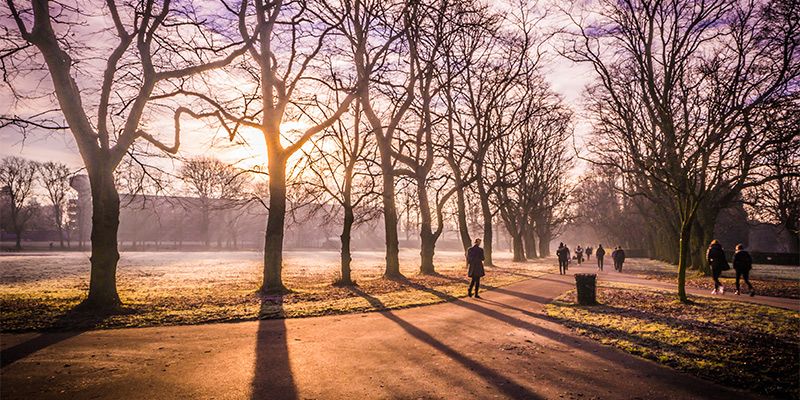
Do you have a favourite book about nature? If so, we’d like to hear from you.
A pioneering new research project, led by the University of Leeds, is looking at how nature writing in the UK has changed over the last 200 years.
Researchers are particularly interested in what the Land Lines project might say about the world today and our connection with nature.
A national survey will form part of the work which you can take part by clicking here and nominating your favourite UK work on nature – along with up to 100 words about why you have chosen it.
The survey will be launched on BBC’s Autumnwatch on Wednesday 25 October. Entry is open until 30 November, after which an expert panel will compile a shortlist of 10 popular books.
In January, an online vote will decide the nation’s favourite piece of nature writing.
Professor Graham Huggan of the School of English at the University of Leeds and research lead for the project said: “Nature writing is probably as popular now as it has ever been.
“ This, the first major study of its kind, will explore how our attitudes to the natural world have changed over the years. ”
"This, the first major study of its kind, will explore how our attitudes to the natural world have changed over the years.
“We’ll also be investigating how people’s feelings about nature have been influenced by their reading, and this survey will kick-start a national conversation about just that.”
Several well-known people have already come forward to say how a book sparked a love of the natural world or even changed their life, including broadcaster, Cerys Matthews, who discusses her love of Wild Food by Roger Phillips:
“We moved to Swansea when I was seven, to a house which edged on to a small copse full of rusting prams and damp mattresses.
"This book, my bible, turned it from a dump to a wonderland full of things to recognise, study, name, cherish and sometimes collect and eat – mushrooms, nettles, sorrel.
"Phillips is a generous writer, and in this case photographer too, opening the door to everyone (of all ages) to the wonders and adventures of the natural world. I’ve never tired of it.”
Mike Collins from the Arts and Humanities Research Council, which is funding the project, said: “In the last decade books about nature have flown off the shelves, and now have a prominent place in bookshops.
"It seems that nature writing is very much speaking to the time we live in, with the power of words helping us to rekindle a love of nature, and find comfort in a rapidly changing world.
“Curiosity-driven research such as the Land Lines project helps us to understand our place in the world. And writers play a key role in navigating us through the challenges of our age – with environmental change being one of the biggest.”
During the research there will also be public exhibitions and workshops across the country. These will stimulate conversations around what nature writing is, why people read it, how it might change the way they think about nature, and what its role might be in these ecologically troubled times.
Out of this work, the first definitive book on modern British nature writing will be published. This will compare nature writing across different historical periods while assessing its changing character over time.
This project is being led by the University of Leeds, with the Universities of St Andrews and Sussex over the next two years.
To find out more about Land Lines, visit the Land Lines website
The Land Lines search for the UK's favourite nature book is in association with BBC Wildlife magazine.
Further information:
Journalists requiring more details or interviews should contact the University of Leeds press office on 0113 343 4031 or email pressoffice@leeds.ac.uk